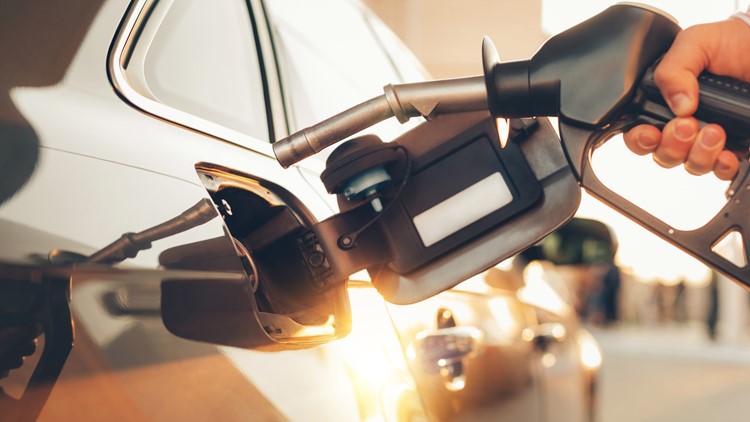ST. LOUIS — The average price of gas across the state of Missouri is the highest it's been since October 2014.
According to AAA Missouri Weekend Gas Watch, the statewide average gas price is $3.05 for a gallon of regular unleaded fuel. That price is 8 cents more compared to this day last week and $1.20 more than this time last year.
Of the major cities in Missouri that were surveyed, drivers in Columbia and Jefferson City are paying the most on average at $3.09. Drivers in Joplin are paying the least at $2.96 per gallon.
The national average price for a gallon of regular unleaded is $3.37, which is 7 cents higher compared to this time last week and $1.21 more than the price per gallon last year.
AAA said the primary cause of the price surge remains the cost of crude oil, which is now above $80 a barrel. In August, the price per barrel of crude oil was near the low $60s.
All 12 Missouri cities AAA surveyed saw increases in pump price averages week-to-week with some areas seeing significant increases.
“Missourians have not seen the statewide average price for gasoline above three dollars per gallon since October 2014,” AAA spokesperson Nick Chabarria said in a press release. “Gas prices may continue to rise as demand for fuel products remains strong and there continues to be supply chain disruptions along with many other industries.”
Although you may be seeing an increase at the pump, Missouri drivers continue to pay some of the cheapest gas prices in the U.S. – ranking fifth lowest in the country.
AAA Fuel Saving Tips
- Minimize your use of air conditioning.
- Plan ahead to accomplish multiple errands in one trip, and whenever possible travel outside high-traffic times of day.
- If you own more than one car, use the most fuel-efficient model that meets the needs of any given journey.
- In hot weather, park in the shade or use a windshield sunscreen to lessen heat buildup inside the car. This reduces the need for air conditioning (and thus fuel) to cool down the car.
- Remove unnecessary and bulky items from your car. It takes more fuel to accelerate a heavier car, and the reduction in fuel economy is greater for small cars than larger models.
- Minimize your use of roof racks and remove special carriers when not in use. On the highway even an empty bike rack can reduce fuel economy, and a loaded rack or car-top container will have a major effect on gas mileage.
- Make sure your tires are properly maintained and inflated to the correct level.
- Maintain your car according to the manufacturer’s recommendations. Regular service will ensure optimum fuel economy, performance and longevity.



